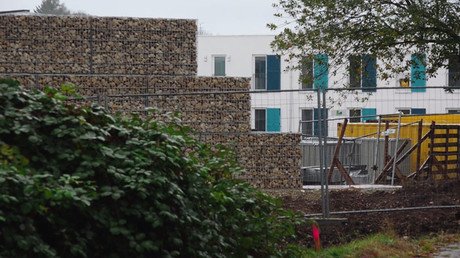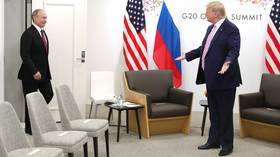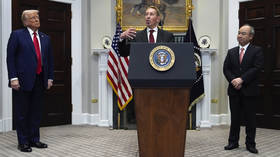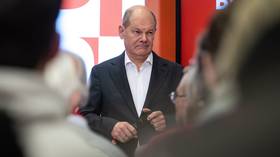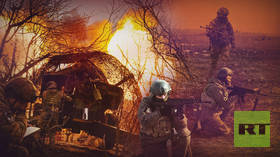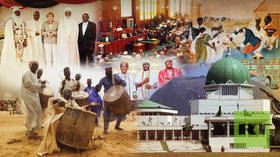Berlin calling: ‘German neighborhood builds wall against new refugee arrivals’
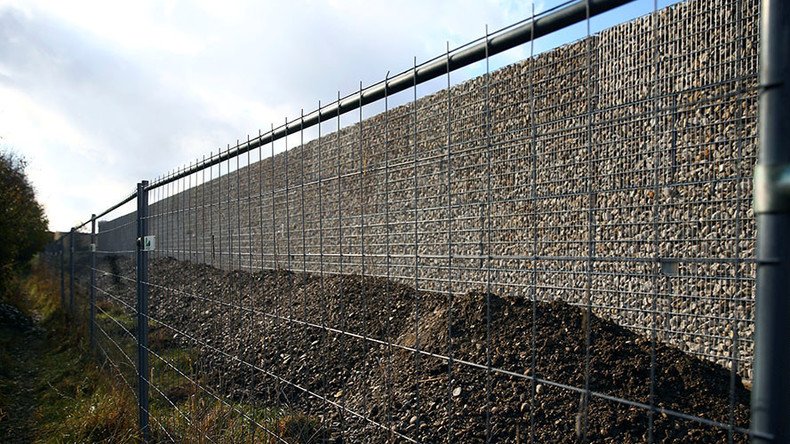
The German people were never asked if they wanted to host the refugees or not, while this influx is hurting property prices, because of criminal behavior, noise and disorder, Hansjorg Muller from Germany's AfD party, told RT.
There's a saying that good fences make good neighbors.
But in one district of Munich, a newly built wall is having the opposite effect.
People in a well-off residential area are building this barrier to separate them from a new center that will soon host 160 young refugees. Residents fear their homes could be devalued and they are also concerned about noise.
Some residents are drawing parallels with the Berlin wall that separated West and East Germany for over two decades before being taken down in 1989. This new wall in Munich, although less dramatic, is still 40 centimeters higher than the wall built under communism.
View of the Berlin Wall that was torn down in 1989:
RT: Doesn’t it seem a bit extreme that some German people would take to building a wall to separate themselves from the refugees?
Hansjorg Muller: The question is rhetorical: Who is entitled to what? The bearer of the German Constitution is the German people. And the German people were not asked by their authorities and their government if they are willing to receive this huge influx of refugees that happened to come last and continuing this year. So, if now the local citizens are somehow trying to defend their home soil, I think the question should be asked the German government why has it come so far?
RT: Is it true that local residents fear their homes could be devalued and they are concerned about noise?
HM: It is an economic fact that wherever you have refugee camps, there is a lot of noise and there is a lot of disorder inside the camps. I really can understand local citizens who don’t want to be reduced in their quality of life because of having refugees camps nearby. They were not asked if they wanted to have it or not, that is the one thing. The other thing is, as regards property prices, because of noise and disorder, they are going down. That’s true. But there is a strange thing going on. Normally, this wall never would have been built or never would have got any permission by local Munich authorities to build this wall. So, for me, this is because Munich citizens are quite defenseless in their own country because they are neither protected nor sheltered by their own government. I think there is some kind of local investor or international investor who is fearing to lose lots of money and that is why contradictive of what is usually going on in Germany, that in this sense this wall has been built. For me, it is completely strange. I think there are some kind of special interests behind the façade…
RT: Don’t you think that this wall could be an objective to the process of coming refugees’ integration?
HM: The question is always ‘who is to integrate where, in what circumstances’. In my personal thinking, the normal way, everywhere in all countries is that foreigners coming into a country, they have to respect the host country, they have to integrate into the culture, language and traditions of the host country. If they integrate or not, this cannot be influenced by the local German citizens. Because it depends on the refugees themselves if they want to integrate or not…. The rate of criminals among refugees from Northern African countries is about 7-8 times higher than that of local German citizens, and among unaccompanied refugees it is even higher.
Sorry, the refugees themselves have provoked with their behavior during the last 1.5 year this reaction by local German people.
The statements, views and opinions expressed in this column are solely those of the author and do not necessarily represent those of RT.
